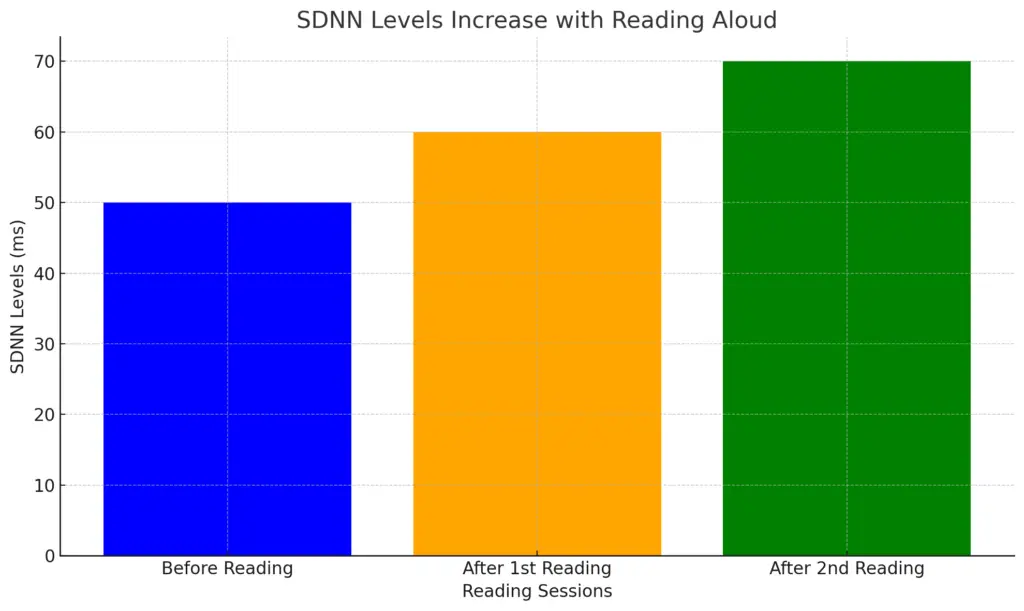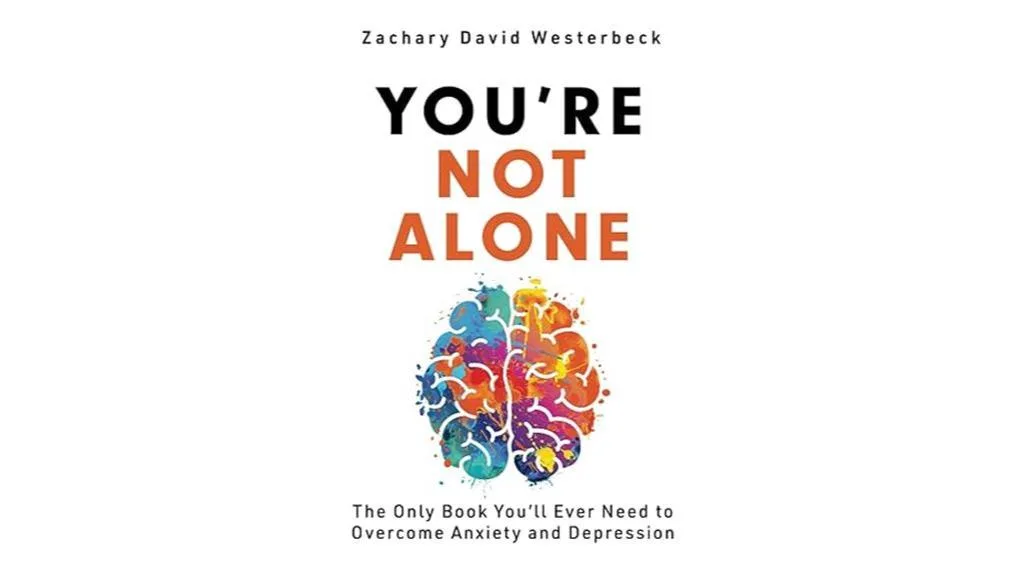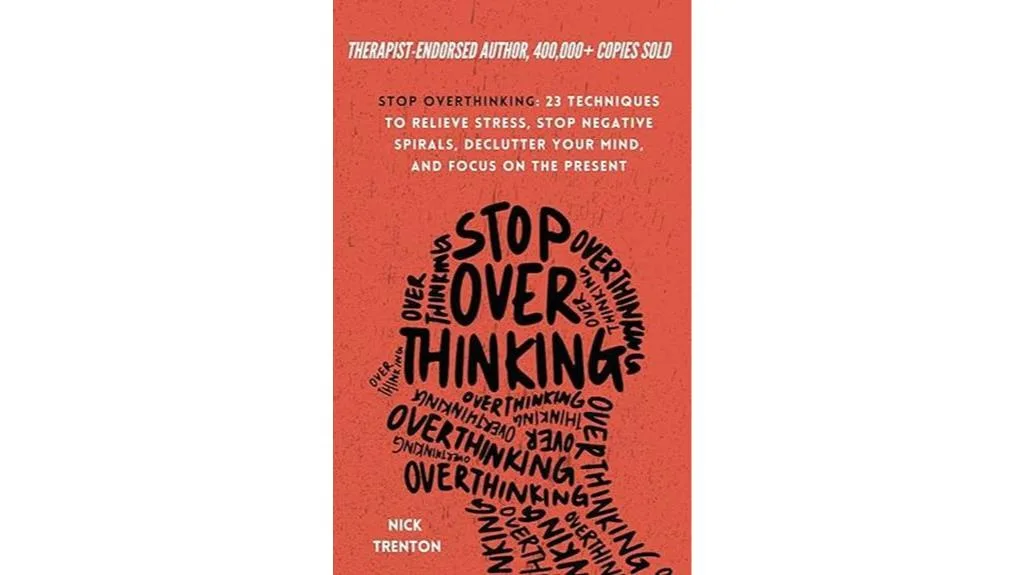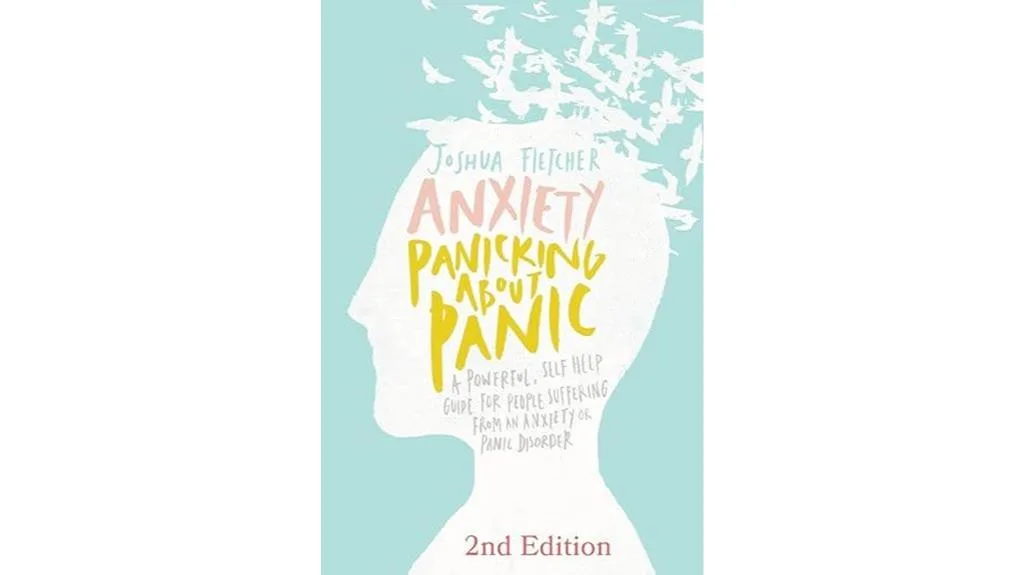
While you might think you’re too busy to take a break, spending a few moments with a good book can actually make you more productive by significantly lowering your stress levels. When you immerse yourself in a story, you’re not just escaping your to-do list; you’re engaging in a mental exercise that relaxes your mind and body.
This isn’t merely about getting lost in a different world; it’s about the tangible physiological changes that occur, such as reduced heart rate and muscle tension. Stick around to uncover the science behind how a simple act transforms into a powerful tool for enhancing your mental health.
Yes, reading can reduce anxiety by distracting the mind and allowing it to focus on the story, which relaxes the body and eases stress.
Key Takeaways
- Reading lowers stress by up to 68% and calms the mind and body.
- Immersion in a narrative provides a mental escape and reduces anxieties.
- Regular reading habits contribute to lowering blood pressure and enhancing physical well-being.
- Engaging with fiction boosts empathy and understanding of others, supporting mental health.
Reading for Stress Relief
Diving into a book can slash your stress levels by up to 68%, making it a more effective relaxant than listening to music or sipping tea. This remarkable finding by the University of Sussex underscores the power of reading for stress relief. When you immerse yourself in a narrative, it’s not just about flipping through pages; it’s an active engagement that commands your full attention, pushing aside worries and anxieties. This process isn’t merely a distraction; it’s a profound shift in focus that facilitates stress reduction.
To effectively reduce stress levels, carving out 30 minutes daily to read in a quiet, interruption-free environment is advised. The choice of book plays a significant role too. Opting for a genre or topic that captivates you can enhance the stress-relieving benefits, making the experience not only enjoyable but also therapeutic. After your reading session, assessing how you feel can serve as a good indicator of the technique’s effectiveness in managing your mental health. Adopting reading as a regular practice can contribute significantly to your overall well-being, offering a simple yet powerful tool for stress reduction.
How Reading Reduces Stress According to Science
Reading a book can reduce stress by promoting positive emotions, such as gratitude and forgiveness, as demonstrated in studies like the one that applied an intervention program using the Bhagavad Gita. Additionally, reading aloud has been shown to increase heart rate variability (HRV), which is an indicator of reduced stress, according to a study. Reading can also serve as a coping mechanism during stressful periods, as indicated by a study that found females were more likely to read a book when stressed during the COVID-19 pandemic. Overall, reading a book can be a helpful and effective method for stress reduction.
Recent studies have highlighted the incredible benefits of reading, not just for gaining knowledge or entertainment but also for stress reduction. One such study focuses on the physiological impacts of reading aloud on stress levels, measured through a metric known as SDNN (Standard Deviation of NN intervals), which indicates heart rate variability. A higher SDNN level is associated with a relaxed state of the autonomic nervous system, suggesting lower stress levels. Participants in the study engaged in reading aloud sessions, and their SDNN levels were monitored to observe the changes.

The illustrated increase in SDNN levels from the study vividly demonstrates how reading aloud can significantly reduce stress. Before the reading session, baseline SDNN levels were recorded, which then progressively increased after each reading session. This incremental growth underscores the potential of reading aloud as a practical and accessible stress management technique. Beyond its immediate soothing effects, this practice fosters deeper emotional resilience and mental well-being over time. Such findings are pivotal, suggesting that incorporating reading aloud into our daily routines can be a simple yet effective strategy for enhancing our stress resilience and overall quality of life.
Mental Health Benefits Of Reading a Book

Reading not only offers a delightful escape but also significantly boosts your mental health by reducing stress and increasing empathy. When you dive into the pages of a book, you’re not just entertaining yourself; you’re engaging in an activity proven to lower stress levels. In fact, studies have shown that reading can reduce stress by up to 68%. This makes picking up a book one of the most effective ways to unwind after a long day.
The mental health benefits of reading go beyond just stress reduction. Reading fiction, in particular, has been found to enhance your understanding of others’ thoughts and emotions, fostering a greater sense of empathy. This can be incredibly beneficial in navigating your relationships and understanding those around you better.
Moreover, for individuals dealing with mental health conditions, the act of reading offers a meaningful form of support. It provides a safe haven, a place to escape the pressures of daily life and find solace in the stories of others. The benefits of reading in reducing stress levels and improving mental wellness can’t be overstated. So next time you’re feeling overwhelmed, remember that a book might just be the remedy you need.
Disconnecting Through Literature
Immersing yourself in a captivating book allows you to disconnect from daily stressors, offering a much-needed mental retreat. When you dive into the pages of a compelling story, you’re not just reading; you’re engaging in a powerful act of mental escape. This isn’t just about distraction—it’s about creating a space where your mind can relax, free from the pressures that weigh you down throughout the day.
Meditative Qualities of Reading

Building on the idea that literature offers a mental retreat, it’s worth noting how the act of reading also mirrors meditative practices, significantly reducing stress and enhancing relaxation. When you dive into a book, you’re not just flipping through pages; you’re engaging in a process that can bring about a meditative state, helping you escape stressors and lower stress levels. Here’s how reading books contributes to relaxation and stress reduction:
- Induces a meditative state: Similar to mindfulness, reading requires focused attention, quieting the mind and inducing a state of calm.
- Provides an escape: It allows you to temporarily step away from reality and immerse yourself in another world, offering a much-needed break from daily stressors.
- Engages the mind: Reading actively involves your mind, which helps distract from anxieties and eases tension.
- Alleviates symptoms of anxiety and depression: The mental escape provided by reading can reduce feelings of anxiety, depression, and burnout.
- Promotes relaxation: The meditative qualities of reading help you unwind, relax, and manage stress more effectively.
Impact of Reading on Blood Pressure
Diving into a good book can significantly lower your blood pressure by calming both your mind and body. When you become absorbed in a narrative, it’s not just an escape; it’s a journey that takes the pressure off your real-life concerns. This mental vacation doesn’t just feel good—it has tangible health benefits, particularly for your blood pressure. By engaging in the act of reading, you’re essentially hitting the pause button on stress, allowing your heart rate to slow and your muscles to relax. This physiological shift is a key factor in reducing blood pressure.
Studies have demonstrated that setting aside just 30 minutes to read can lead to noticeable drops in blood pressure. This isn’t a temporary fix, either. The relaxation you achieve through reading helps regulate your blood pressure over time, offering a form of stress relief that’s both enjoyable and beneficial to your health. Think of each page turned as a step toward a more relaxed state of mind and body. By incorporating reading into your daily routine, you’re not just indulging in a hobby; you’re actively contributing to your overall well-being by managing stress and keeping your blood pressure in check.
Enhancing Sleep Quality
After exploring how reading lowers blood pressure, let’s examine its role in improving sleep quality. Reading before bed is more than just a way to end your day; it’s a method to significantly reduce stress levels and enhance sleep quality. By incorporating a calming book into your bedtime routine, you can enjoy several benefits:
- Reading acts as a natural sedative, calming your mind and preparing you for sleep.
- It helps distract you from daily stresses, allowing you to relax more easily.
- Just 6 minutes of reading can lower stress by up to 68%, making it easier to drift off.
- A consistent bedtime reading habit signals to your brain that it’s time to wind down.
- Establishing a reading routine creates a calming ritual, helping your body recognize it’s time for rest.
Incorporating reading into your nightly routine isn’t just about indulging in a good story; it’s a strategic move to reduce stress levels and improve sleep quality. By choosing a calming book and making it a part of your bedtime ritual, you’re setting the stage for a more peaceful night’s rest, ensuring you wake up refreshed and ready to tackle the day.
Alleviating Anxiety and Depression
Exploring how reading books can significantly alleviate symptoms of anxiety and depression reveals its power as a mental health tool. By engaging your mind and providing a mental escape from negative thoughts, reading acts as a balm for your mental wellbeing. When you’re absorbed in a story, your focus shifts away from stressors, ushering in relaxation and a sense of calm. This isn’t just anecdotal; studies, including one published in PLOS ONE, have shown reading can reduce stress levels by up to 68%.
Diving into a book allows you to immerse yourself in different perspectives and experiences, offering a respite from the internal struggles linked to anxiety and depression. It’s a way to momentarily step outside of your own life and its associated pressures. Moreover, the act of reading triggers your brain to enter a state of deep focus and concentration. This not only diverts attention from anxious or depressive thoughts but also promotes a sense of well-being. By providing this mental escape, reading becomes a powerful ally in reducing stress and mitigating the effects of anxiety and depression.
Coping With Reality
In today’s fast-paced world, finding a way to cope with the harsh realities of daily life is crucial, and reading offers an effective escape by shifting your focus to the world within a book. When you’re feeling overwhelmed, consider how reading reduces stress through various mechanisms:
- Mental escape: Reading transports you to different realms, providing a much-needed break from reality.
- Distracts the mind: Engaging in a story helps distract you from stressors, allowing your mind to relax.
- Lowers cortisol levels: Immersing yourself in a book can lower your body’s stress hormone, making you feel calmer.
- Focus on narrative: By concentrating on the narrative, you’re less likely to dwell on stress triggers in your life.
- Alleviate stress: Choosing a book that resonates with you can be particularly effective in reducing anxiety and stress.
Organizing Your Reading

While reading offers a valuable escape from daily stress, organizing your reading can further enhance this relief by instilling a sense of order and achievement in your literary pursuits. By setting specific reading goals and crafting a reading schedule, you’re not just reading; you’re embarking on a journey where each page turned is a step towards your personal accomplishment. This structured approach to reading not only enriches your experience but also amplifies the stress-reducing benefits of reading by giving you a clear sense of progress and control.
To keep you motivated and on track, tracking your performance becomes an invaluable tool. Whether it’s jotting down the number of pages read each day or logging hours spent reading, seeing your progress in real-time can be incredibly satisfying. Consider using tools like the Basmo Book Tracker to keep a detailed record of your reading habits.
| Strategy | Benefit |
|---|---|
| Setting Goals | Creates a sense of purpose |
| Crafting Schedule | Ensures consistent progress |
| Tracking Performance | Provides motivation and control |
Setting and Achieving Goals
Setting clear reading goals can significantly enhance your ability to manage and enjoy your reading habits. By defining what you want to achieve, you’re not just reading aimlessly; you’re reading purposefully. This not only makes your reading sessions more productive but also more satisfying.
When you’re setting and achieving your reading goals, consider these points to make your journey more rewarding:
- Tailor your goals to your individual preferences. Whether it’s a certain number of books per month or minutes per day, choose what excites you.
- Use tools like Basmo Book Tracker for tracking progress. It’s easier to stay motivated when you can see how far you’ve come.
- Celebrate small achievements. Every goal met is a step closer to your ultimate reading target.
- Adjust goals as needed. If you find a goal too challenging or too easy, tweak it to keep yourself engaged.
- Share your goals with friends or a reading community. This adds a layer of accountability and can be a great source of encouragement.
Achieving goals in reading isn’t just about ticking off books from your list; it’s about enhancing your reading experience and, by extension, reducing stress. Tracking progress and aligning your reading habits with your personal preferences, with the aid of tools like Basmo Book Tracker, can make a significant difference in how you perceive and enjoy reading.
3 Top Books About Anxiety That Will Change Your Perspective
Navigating through the sea of books on anxiety is like searching for lighthouses in a stormy night; it’s daunting, yet the right ones can guide you safely to shore. You’ve probably encountered countless titles, but there are three that stand out not just for their practical advice but for their power to transform your perspective on anxiety.
‘You’re Not Alone: Overcoming Anxiety and Depression,’ ‘Stop Overthinking: 23 Techniques to Relieve Stress (The Path to Calm),’ and ‘Anxiety: Panicking about Panic: Self-Help Guide for Anxiety & Panic Disorders’ are more than mere books; they’re companions on a journey toward understanding and managing anxiety.
Before you brush this off as just another list, consider how each book offers unique insights and tools that could be the key to unlocking a calmer, more empowered self.
You’re Not Alone: Overcoming Anxiety and Depression Book

For young adults grappling with anxiety and depression, ‘You’re Not Alone: Overcoming Anxiety and Depression Book’ emerges as an essential read, offering relatable experiences and practical coping mechanisms. This easy-to-read guide draws you in with the author, Zach’s, personal journey through mental health struggles, making you feel understood and less isolated.
You’ll find his authentic recounting of facing anxiety and depression not just inspiring but also incredibly useful. Zach’s practical advice, rooted in his own experiences, gives you a toolkit for managing your mental health. Whether you’re dealing with these challenges yourself or know someone who is, Zach’s story and the strategies he shares make this book a valuable resource. It’s not just a book; it’s a companion for those tough days, reminding you that you’re not alone and that overcoming these obstacles is possible.
Best For: Young adults and college students seeking relatable experiences and practical advice on overcoming anxiety and depression.
Pros:
- Offers an engaging, easy-to-read format that resonates with young adults.
- Provides practical coping mechanisms and advice based on the author’s personal experiences.
- Encourages a sense of community and support for readers, making them feel less isolated.
Cons:
- May not delve as deeply into clinical aspects of anxiety and depression as some readers might prefer.
Stop Overthinking: 23 Techniques to Relieve Stress (The Path to Calm)

If you’re constantly caught in a whirlwind of negative thoughts, ‘Stop Overthinking: 23 Techniques to Relieve Stress, Stop Negative Spirals, Declutter Your Mind, and Focus on the Present’ by Nick Trenton might just be the lifeline you need. This book dives deep into practical techniques to break free from the chains of overthinking.
You’ll learn how to stop dwelling on negatives, recognize what triggers your anxiety, and declutter your mind for a sharper focus on the here and now. Readers have found real relief through Trenton’s actionable advice, noting significant decreases in their stress levels and a newfound ability to manage mental well-being. It’s not just about theory; it’s about transforming your life with strategies that work. Dive into this guide and start your journey toward a calmer, more centered self.
Best For: Individuals looking to break the cycle of overthinking and seeking practical techniques to manage stress and improve mental well-being.
Pros:
- Offers a wide range of practical techniques tailored to stopping negative thought spirals.
- Accessible to readers at all levels of familiarity with mental health concepts.
- Positive real-life testimonials from readers who witnessed significant improvements.
Cons:
- Some readers may find certain techniques challenging to implement consistently.
Anxiety: Panicking about Panic: Self-Help Guide for Anxiety & Panic Disorders

Individuals grappling with anxiety and panic disorders will find ‘Anxiety: Panicking about Panic: Self-Help Guide for Anxiety & Panic Disorders’ to be an invaluable resource, offering practical advice and deep insights into managing their conditions.
The book breaks down into three accessible parts: it starts by outlining symptoms, moves on to explain the causes and effects, and wraps up with coping advice. It’s not just about listing symptoms; it demystifies anxiety and panic disorders, making you feel less alone in your struggle.
The author shares their personal journey, helping you acknowledge your problem while providing practical guidance for dealing with anxiety and panic attacks. It’s described as a game-changer by many readers who’ve found solace in its pages, making it a must-read if you’re seeking to understand and conquer your anxiety and panic attacks.
Best For: Individuals looking for practical and empathetic guidance to understand and manage anxiety and panic disorders.
Pros:
- Provides a comprehensive overview of anxiety and panic disorders, including symptoms, causes, and coping strategies.
- Shares the author’s personal journey, offering relatable insights and encouragement.
- Simple, concise, and easy-to-follow advice that can have a real impact on managing anxiety and panic attacks.
Cons:
- May not provide new information for those already familiar with anxiety and panic disorders.
Factors to Consider When Choosing Books About Anxiety
When picking out books on anxiety, it’s crucial you consider a few key factors to ensure they’ll truly benefit you. Check the author’s expertise to guarantee the advice is reliable, and look for content that resonates with your personal experiences.
Lastly, books that offer practical strategies, are grounded in science, and empathize with the reader can provide the most help.
Author Expertise
Evaluating an author’s expertise is crucial when selecting books about anxiety to ensure you’re getting informed and reliable guidance. It’s important to consider the author’s background in psychology, counseling, or mental health to verify their expertise.
Authors who’ve personally grappled with anxiety or depression can offer unique insights and relatable advice, making their books particularly valuable. Additionally, checking for relevant qualifications, like certifications in cognitive behavioral therapy or mindfulness practices, can indicate a robust understanding of anxiety management techniques.
Authors who’ve conducted research or studies provide evidence-based strategies, while those with a history of working directly with individuals experiencing anxiety disorders bring practical, real-world experience to their writing. Choosing an author with these credentials ensures you’re receiving trustworthy and effective advice.
Personal Relevance
Finding the right book about anxiety that speaks directly to your needs requires considering several personal factors. It’s crucial to identify books that address your specific anxiety triggers and concerns.
You’ll want to connect with personal stories or experiences within the book that mirror your own feelings and struggles, making your journey feel understood and less isolating. Moreover, the book’s approach should resonate with your preferred learning style.
Whether you lean towards scientific explanations, personal narratives, or action-oriented advice, ensuring the book matches your learning preference will enhance your engagement and the practical application of its content.
Practical Strategies
After considering which books resonate with your personal journey, it’s equally important to focus on those that offer practical strategies for managing anxiety. Look for books that provide step-by-step guides on implementing coping mechanisms in your daily life.
You’ll benefit from choosing reads that offer actionable advice and tools to tackle anxiety symptoms and triggers. Consider those that include exercises, worksheets, or interactive elements, aiding in practicing and applying these strategies effectively.
Opt for books emphasizing real-life scenarios and examples, making the strategies more relatable and applicable. By selecting books enriched with practical tools and real-world applications, you’ll arm yourself with the resources needed to navigate and manage your anxiety more effectively.
Scientific Basis
When selecting books about anxiety, it’s crucial to opt for those grounded in scientific research to ensure the advice you’re following is both credible and effective. Look for publications authored by mental health professionals or psychology experts, as they offer a deeper comprehension of anxiety’s intricacies.
Verify the inclusion of references to studies, clinical trials, or reputable sources to confirm the book’s scientific reliability. Books that delve into the neurobiological aspects of anxiety shed light on how it impacts both brain and body, providing valuable insights.
Additionally, prioritize titles that feature evidence-based therapeutic techniques. These methods are proven effective in managing anxiety, offering you practical and trustworthy strategies to cope with your condition.
Reader Empathy
Selecting anxiety books that resonate with your experiences can significantly enhance your feeling of being understood and not alone in your journey.
When authors imbue their work with empathy, it bridges a connection, making you feel seen and validated. This sense of connection is crucial; it can diminish feelings of isolation and loneliness that often accompany anxiety.
Empathetic content in these books offers comfort and reassurance, demonstrating that your feelings are normal and manageable. Moreover, such books promote self-compassion and acceptance, crucial elements in managing anxiety effectively.
Coping Mechanism Insights
Understanding the empathetic narratives within books about anxiety can significantly comfort you; equally important is exploring how these resources outline coping mechanisms that cater to your unique journey in managing anxiety.
These books provide practical advice and strategies to help you navigate your mental health challenges more effectively. By diving into various coping mechanisms, you’ll gain a deeper understanding of your symptoms and triggers. Learning about different approaches empowers you to develop personalized strategies that work best for you.
Insights from these books can enhance your self-awareness and promote a sense of control over your anxiety symptoms, leading to improved mental well-being. It’s about finding the right tools that resonate with you, helping you manage stress and anxiety more effectively.
Frequently Asked Questions
What Are the Benefits of Reading Books?
Reading books offers you a mental escape, boosts your creativity, and lowers your stress. You’ll find relaxation as your heart rate drops and tension eases, making you feel calmer in just minutes.
How Can Reading a Book Help With Anxiety?
When you read a book, you’re whisked away into a different world, helping you forget your anxieties. This mental escape lowers your stress, calms your mind, and can significantly ease your anxiety.
Does Reading Books Calm Your Mind?
Yes, reading books can definitely calm your mind. By focusing on a story, you’re transported away from daily stress, reducing your heart rate and relaxing your muscles. It’s like a mini-vacation for your brain.
How Does Reading Help Your Mental Health?
Reading boosts your mental health by providing an escape, lowering your heart rate, and easing tension. It activates your imagination, offering a break from daily stress and enhancing your overall well-being through engaging storytelling.
How Can Reading About Anxiety Help Reduce the Stigma Associated With Mental Health Issues in Society?
By reading about anxiety, you’re gaining insight into others’ experiences, which makes you more empathetic and understanding. This reduces stigma by normalizing conversations about mental health and showing it’s a common issue that many face.
Are There Any Recommended Books Specifically Focused on Anxiety Relief for Children and Teenagers?
Yes, there are several excellent books aimed at helping kids and teens manage anxiety. They’re designed to be relatable and offer practical advice, making it easier for you to find the right support.
How Do the Techniques and Advice in These Books Compare to Professional Therapy or Medication for Anxiety?
You’ll find these books offer valuable insights, but they don’t replace professional therapy or medication. They can complement treatment, providing strategies and understanding that enhance your journey towards managing anxiety more effectively.
Can These Books Provide Insight Into How Cultural Differences Impact the Perception and Management of Anxiety?
Just like spices add different flavors to food, these books can show you how culture shapes anxiety’s taste. They’ll offer insights into managing it, influenced by traditions and societal norms from around the world.
What Are the Success Stories or Testimonials From Readers Who Have Found Significant Improvement in Their Anxiety Levels After Reading These Books?
You’ve asked for success stories from readers who’ve seen their anxiety levels improve after reading certain books. Many report feeling more understood and equipped with coping strategies, significantly enhancing their daily life and mindset.
Conclusion
In wrapping up, it’s clear that diving into a good book isn’t just a way to kill time; it’s a lifeline in tumultuous seas.
By lowering your stress levels, enhancing mental health, and offering a meditative escape, reading proves to be a powerful ally.
So next time life throws you curveballs, remember to turn the page on your worries. Organize your reading, set achievable goals, and watch as the chapters of stress begin to close, one book at a time.
